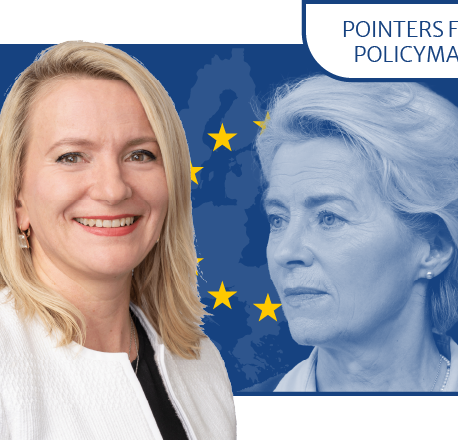
In these uncertain times, we can be happy and proud of our nearly three decades as part of the European family. The global political situation highlights the importance EU membership has for Finland’s political and economic identity.
The unity of the EU is now more important than ever. The Finnish financial sector has strongly supported Finland’s EU and EMU membership and wants Finland to continue to play an active role in developing and strengthening the Union.
Russia’s invasion of Ukraine has brought member states together in an unprecedented way. The EU has acted quickly and with shared determination that is even stronger than that seen when the coronavirus crisis broke out. Some sore points do still remain, of course, particularly in the area of energy policy.
Despite the political environment, EU legislative preparation is running at full steam in Brussels.
The legislative work of the 2019–2023 EU term is entering its final rounds as sights are already shifting to the European elections in 2024. Next autumn offers the last window for the Commission to make extensive legislative initiatives because they must be negotiated before the election turmoil in spring 2024.
Russian military action has increased the pressure to promote digitalisation and the green transition, which can be considered a positive development: the costs of polluting and climate-adverse activities must be raised higher. We need a global price for carbon emissions and a binding carbon budget to help direct long-term investment in the EU. The green transition will also help reduce the EU’s dependency on Russian energy.
======
The EU has acted quickly and with shared determination
that is even stronger than when the coronavirus crisis broke out.
Some sore points do still remain,
particularly in the area of energy policy.
======
Delineations on the further deepening of the Banking Union are expected in June, provided that political agreement is reached. We assume the work will be split into two phases, with the first steps in the creation of a European deposit insurance scheme taken in the current EU legislative period and the next steps to follow in the upcoming period.
It is vitally important that any decisions to expand risk sharing are carefully deliberated and justified. The present problems of each member state’s banks must be solved and risks reduced before risk sharing is deepened in the Banking Union.
In addition to the Banking Union, key legislative packages currently on the table include the next stages of the EU sustainable finance regulation. In fact, a lot of the regulation currently being prepared will enable the financial sector to promote the green transition. It will not only cover environmental and climate criteria, but also define social and governance indicators to support financial, investment and insurance decisions in the future.
======
The green transition will also help reduce
the EU’s dependency on Russian energy.
======
This year will also see the long-awaited end to the negotiations regarding the reform of capital requirements regulation in the banking and insurance sectors. The outcomes of both the Basel implementation and the Solvency II reform have far-reaching effects on banks and insurers’ capacity to contribute to European economic recovery by supporting long-term infrastructure investments and the financing needs of companies and retail customers.
In April, Finance Finland published its objectives for the next Finnish government programme. We are now engaged in active dialogue with Finnish politicians over how the principles of better regulation will be taken into practice in the EU. Regulation must be based on high-quality impact assessments that also acknowledges small countries and the characteristics of different markets.
Adequate time must be reserved for the implementation of regulation. The entry into force of new EU regulation must not be fixed until the preparation of supplementary but important lower-level regulation is complete. Review clauses must be applied only when necessary, and the period between the adoption of the regulation and the review must be extended. It is important to include these principles into Finland’s next government programme and, further, into the work programme of the next Commission starting in 2024.
Still have questions?
|Contact FFI experts
Looking for more?
Other articles on the topic

The Nordic model for European savings and investments accounts is simply excellent – The Commission would be wise to look to the North

Commission unveils proposal to revive securitisation, aiming to strengthen EU capital markets

How much would the digital euro cost? Initial estimation published

The Brussels regulatory machine is running full throttle – The threshold for new regulatory proposals must be high




